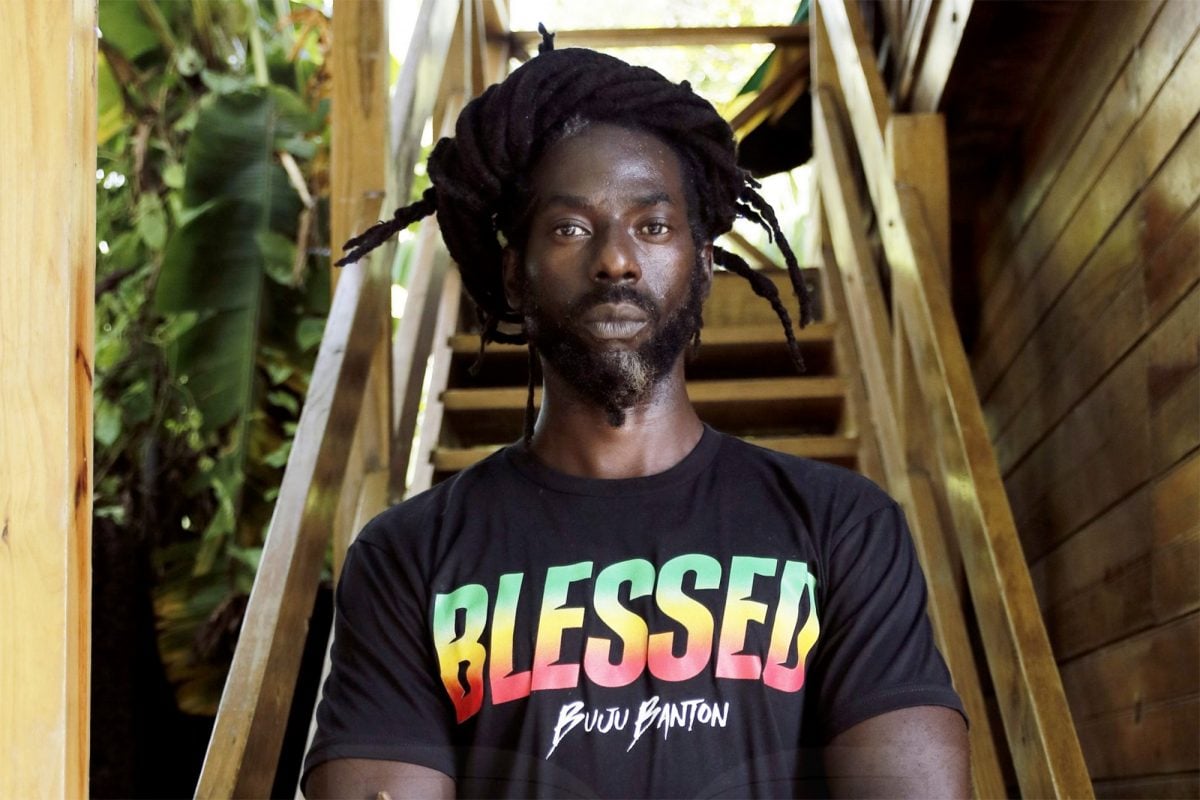Buju Banton Describes Streaming Pay As “Modern-Day Robbery”

Buju Banton has once again lamented losing the sense of ownership that he used to feel when in possession of vinyl records, which he says offer a more immersive experience compared to streaming or other digital music forms.
Recalling the days when records were tangible possessions that represented true ownership, Buju expressed a deep sense of loss due to the growth of digital music at the expense of vinyl and, to a lesser extent, its compact disc (CD) counterpart.
“Let’s be realistic. I’m coming from an era where a record was a record. And this said record… was sold for a minimal five dalla, seven dalla, seven dalla… That’s how it grew and come forward. Then I come to a time where I have no more bomboclaat record. I man find myself with a CD. A CD! I man accept it. I man coulda still hear my music. And I man coulda still hold suppm to represent my ownership of the music weh mi a listen to,” Buju said during a Revolt interview.
“Then I man guh guh sleep and wake up and hear seh I man have no record, no CD [they] put di music inna di bloodclaat cloud,” he remarked, drawing laughter from his audience.
The eight-time Grammy nominee also pointed to the instability of digital music, which he asserted is exacerbated by the reliance on subscription services, which he sees as a significant drawback compared to vinyl, due to the dependency on continuous payments to access a music collection.
“I come from a stage of owning my music where I can play every time I bloodclaat want, to a stage where, if my phone don’t bloodclaat subscribe, I can’t hear my music,” he said.
In a passionate outburst, Buju went on to criticize streaming companies for their meager payouts to artists. He also condemned industry leaders for their silence on what he perceives as modern-day robbery and intellectual property theft.
“Teck my music and put it inna di cloud, and I can’t get my music fi physically, play my music when I want to hear my music. Yet yuh paying I nuttn fi I music? Pennies! It neva cost I pennies fi mek dis bloodclaat. Yuh trick wi!” he exclaimed.
“An di major players who supposed to speak up about this trickery and modern day bloodclaat robbery and stealing of intellectual property are silent…” he added.
According to Buju, the current streaming model is unsustainable for younger artists.
“Even from a financial standpoint, I don’t think the young cats today will be able to get their life in order based on what they’re being paid from the current mode of income. It’s not going to happen. It’s not going to happen. So, we’re being robbed and our industry’s being raped. Somebody’s getting that cash. But nobody don’t want to talk about it.”
While acknowledging that some people prefer the convenience of streaming due to space constraints, the Til Shiloh singer emphasized the enduring demand for vinyl among music connoisseurs like himself, nostalgically recalled the ritual of handling vinyl records, from removing the plastic to reading the credits on the sleeve.
“Something has happened to us. We’ve moved from a parochial distribution where we got a physical product. Me understand, you think it’s too bulky and the world is moving. But there are people like us. I want my music. I want my record. I want to put my record on. I want to hear the needle go ‘chhhh’. It means something to me,” he recounted.
“Remember those days? Yeah. When you get a record and you rub it on your pants, you take the plastic off. You rub the front and the plastic is open like this and you take out your record. Fresh new record. Do you want to put your sh-t back in the sleeve so good and put it back down in the jacket so good?” he asked.
Buju Banton’s sentiments are echoed in an October 2023 article from the Collegiate Times titled Physical media is important in the streaming age, which also reflected his yearning for the days when music was more than just a digital file in the cloud.
The article highlighted the financial struggles faced by smaller artists in the streaming era, where platforms like Spotify pay less than half a cent per stream. This, it noted has forced many artists to rely on touring or other jobs, stifling their creative growth.
Like Buju, the article also pointed out that streaming services do not offer true ownership, as users essentially rent the music for a monthly fee, which contrasts sharply with the tangible connection that comes with owning physical media, where the art can be appreciated and preserved without the risk of alteration or removal.
“Streaming is a great platform for discovery, but physical media turns the discovery into appreciation. Holding art in your hands helps you form a bond, and it’s always great to show your love for something to other people,” it added.
